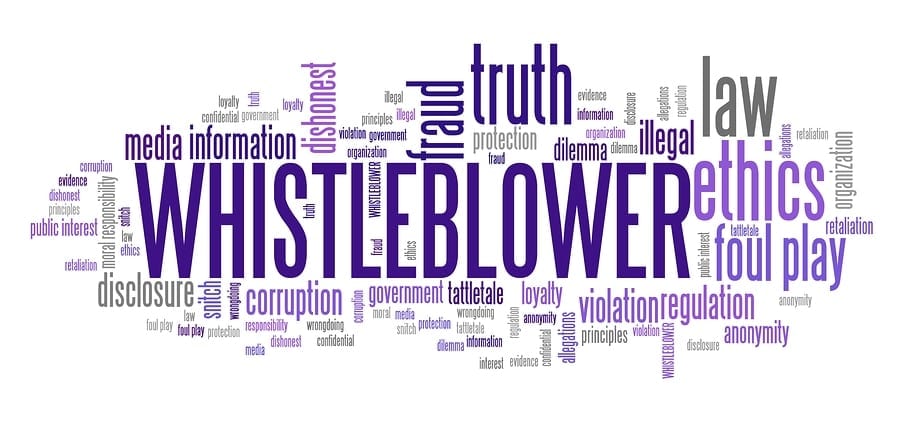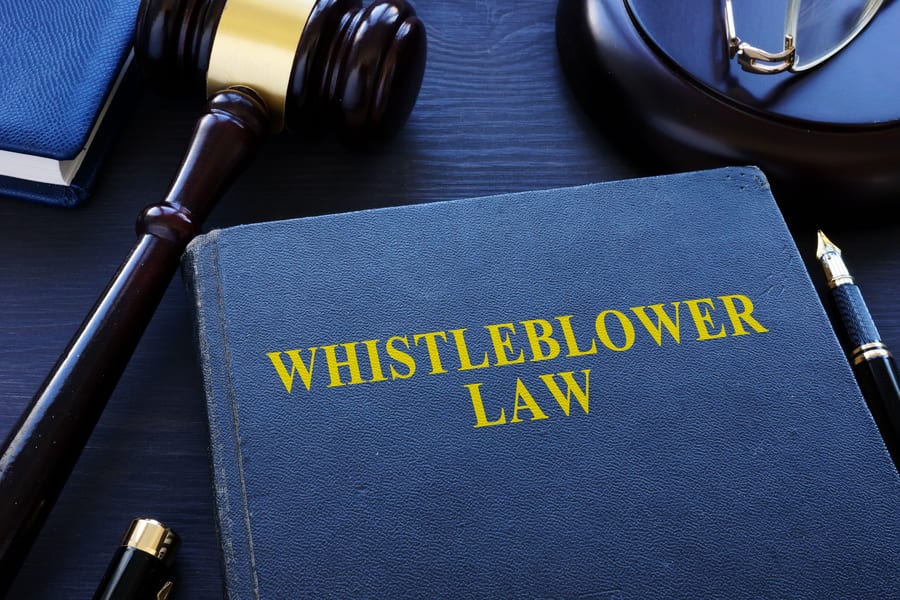Whistleblower Protection: Legal Rights and Obligations in Federal Agencies

Whistleblower protection is a vital component of the legal landscape, offering a shield to those who raise their voice against illegal, unethical, or dangerous actions in the workplace. This topic bears immense relevance in the federal sector, as well as within the scope of the Georgia state legal framework. For employees who may be considering speaking up, understanding the nuances of these provisions can make the difference between protection and potential backlash. Conversely, employers must grasp the obligations that these laws impose in order to foster a transparent and compliant work environment.
With a keen eye on the issues at stake, we’ll explore the intricate web of rights and obligations woven by whistleblower protection laws, particularly within the federal and Georgia state frameworks. Through this deep-dive analysis, we aim to provide comprehensive guidance for potential whistleblowers and administrators navigating the complex terrains of federal and state employment laws.
The Evolution of Whistleblower Protection
A Historical Rundown
The roots of whistleblower protection are entrenched in the history of the American labor movement, where advocacy for safer working conditions rose to the fore. The surge in federal legislation in the late 20th century, such as the Occupational Safety and Health Administration (OSHA) and its whistleblower protections, signaled a significant shift in the nation’s legal stance on workplace safety. The subsequent Whistleblower Protection Act of 1989 (WPA) solidified protections for federal employees, setting a standard for legal shields against retaliatory actions by employers.
Modern-Day Implications
Today, these laws continue to play a crucial role in maintaining the integrity of the workplace. They are not just tools to redress retaliatory actions but also instruments to prevent future violations by holding accountable those who engage in reprisals against whistleblowers. With a key focus on the WPA and other pertinent federal statutes, we’ll uncover the layers of protection designed to safeguard individuals who report misconduct.
The Guardian of Federal Whistleblowers: The WPA – Defining Moments
The WPA emerged as a major milestone in the trajectory of whistleblower protection, establishing comprehensive provisions for federal employees. We’ll dissect the essential rights and mechanisms offered by this act, offering a detailed understanding of its operational framework. We’ll also explore pivotal case law and how it has defined the boundaries and applications of these protections over time.
Unpacking Legal Coverage
The WPA provides avenues for safe reporting of employer wrongdoing, prohibiting retaliatory actions in response to such disclosures. Through a blend of legislative text and interpretative guidance, we’ll elucidate the scope of these protections, shedding light on the types of disclosures that qualify and the appropriate steps for reporting.
Illustrious Case Studies
By drawing parallels to notable cases, we’ll showcase the real-world impact of the WPA and its role in fostering accountability. These case studies will serve as instructive examples, offering insights into the strategies employed by successful whistleblowers and the lessons gleaned from their experiences.
The Lloyd-La Follette Act: A Pillar of Whistleblower Protection
The Lloyd-La Follette Act, although conceived in an era before the WPA, continues to stand as a precursor to modern whistleblower protections. We’ll examine the lingering influence of this act in today’s federal workplace and its contribution to the current legal and cultural landscape surrounding whistleblowing.
Linking the Past to the Present
By tracing the Act’s legislative history and subsequent amendments, we’ll illustrate how its spirit remains ingrained in today’s statutory framework. We’ll highlight the Act’s historic role in promoting accountability within the federal sector and providing a foundation for future whistleblower legislation.
Looking to the Future
We’ll also explore potential areas for growth and refinement in whistleblower protections. With a focus on legislative proposals and advocacy efforts, we’ll discuss the movement to expand these protections and the ongoing debates about the most effective means of protecting whistleblowers.
Beyond Federal Borders: Whistleblower Protections in Georgia
The Georgia State of Affairs
While federal laws provide a comprehensive framework for whistleblower protection, each state retains the latitude to craft its own statutes on the matter. In this section, we’ll unpack Georgia’s approach to protecting whistleblowers, comparing and contrasting its provisions with those provided at the federal level.
Legal Harmonization
To ensure a seamless transition for employees reporting violations, it is crucial to understand where state and federal laws align and where they diverge. We’ll provide clarity on these important considerations, highlighting Georgia’s unique contributions to the whistleblower protection landscape.
The Rights and Responsibilities of Whistleblowers
Federal and State Dichotomies
Whistleblower protection laws come with a set of rights and, most importantly, a specific set of obligations that employees must adhere to in order to claim these protections. We will deep-dive into the laws, clarifying the requisite criteria for a valid whistleblower claim and the potential pitfalls that could negate an employee’s shield against retaliation.
Ensuring Effective Protection
Understanding and effectively exercising one’s rights as a whistleblower involves a multi-step process — from making a protected disclosure to navigating the administrative and, if necessary, the legal channels of redress. We’ll cover these critical stages, offering a strategic path forward for those considering or currently involved in whistleblowing activities.
Staying Informed with Recent Developments
Legal Precedents and Case Law
Legal frameworks are not static; they evolve in response to changing societal norms and emerging issues. We’ll provide an up-to-date analysis of significant court decisions that have shaped the legal understanding and application of whistleblower protections in federal agencies and under Georgia state law.
The Shifting Sands of Policy
In the wake of high-profile whistleblower events, it is not uncommon for legislative and policy changes to follow. We’ll keep you abreast of the latest developments in whistleblower protection laws, including proposed reforms and their potential impact on the employee-employer dynamic.
A Roadmap for Whistleblowers
Taking the First Steps
For those who believe they have witnessed unlawful actions in the workplace, the decision to blow the whistle can be daunting. This section will lay out the initial steps one should consider, from gathering evidence to seeking legal counsel and evaluating the potential risks and benefits.
The Power of Legal Consultation
Navigating the complex terrain of whistleblower laws requires specialized knowledge and guidance. We’ll emphasize the role of the employment lawyer in providing critical advice and support to whistleblowers, ensuring that their actions are legally sound and effectively protected.
Summary and Call to Action
The Value of Whistleblower Protection
Whistleblower laws underscore the fundamental principle of protecting the public interest and upholding ethical conduct within organizations. By promoting a culture of openness and accountability, these laws serve as a bulwark against corruption and malfeasance.
Seeking Assistance
For individuals at the crossroads of whistleblowing, the path forward is not without its challenges — but it is also laden with opportunities to effect positive change. We encourage potential whistleblowers to take that first step in seeking legal counsel, as knowledge and preparation are their most potent allies.
Connecting with the Vaughn Law Firm
The Vaughn Law Firm is committed to assisting whistleblowers in Georgia as they take on the formidable task of reporting illegal activities in the workplace. If you find yourself in such a predicament or seek to understand your rights and obligations more thoroughly, we invite you to contact us at 1-877-212-8089. Our experienced employment lawyers are here to offer the guidance and advocacy you need to maneuver the intricate landscape of whistleblower protection laws.
In conclusion, the thread running through this comprehensive exploration of whistleblower protection is one of empowerment. Whether you are an employee on the cusp of a critical decision or an organization poised to uphold the legal and ethical standards that underpin modern governance, a nuanced understanding of whistleblowing laws is not just advantageous — it’s essential. Through education, advocacy, and a dedicated legal partnership, we can expand the mantle of protection for whistleblowers, nurturing a work environment that is safe, just, and accountable.




